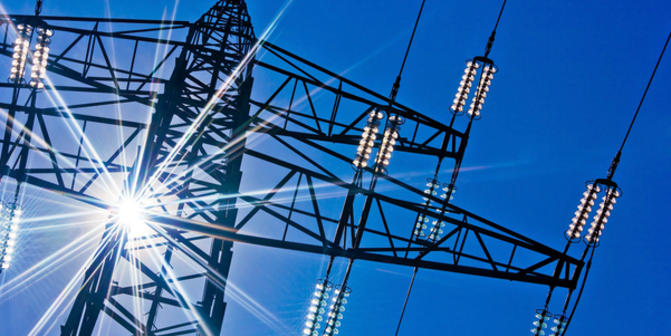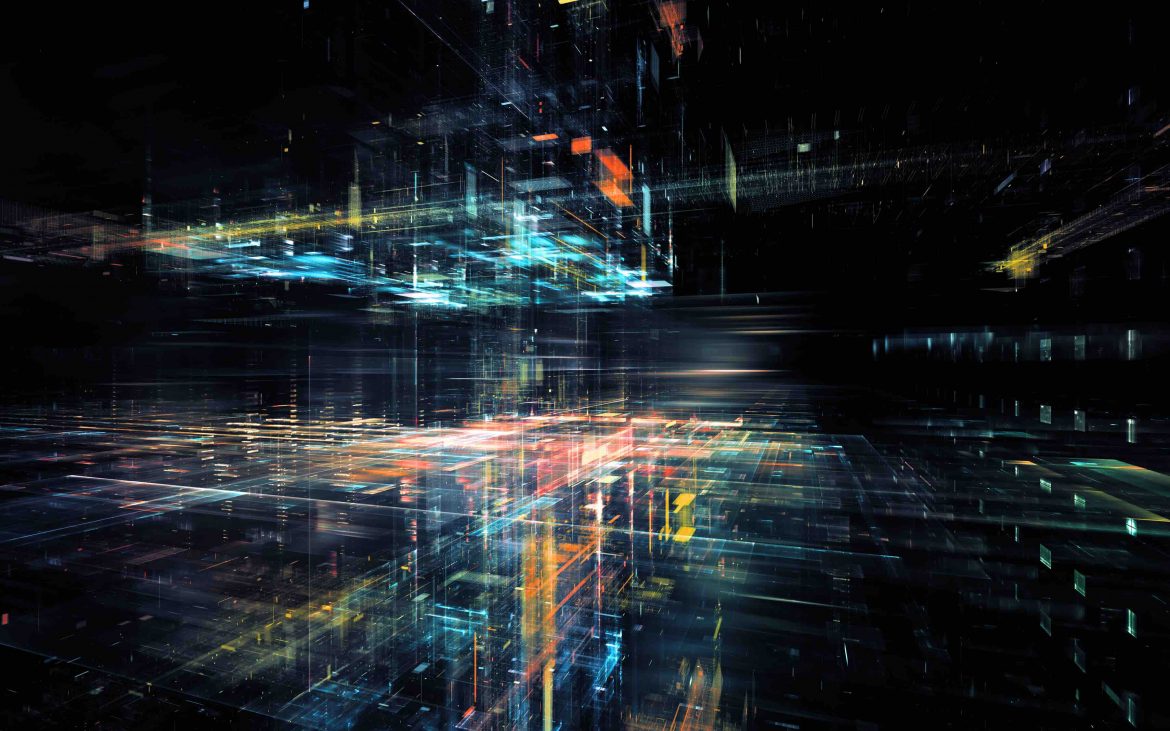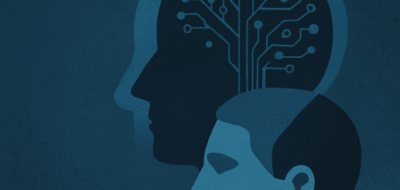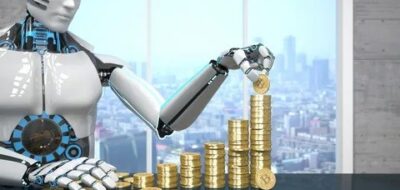According to one view, blockchain may become for the world of transactions and settlements what the internet has become for global communication. However, an even stronger case can be made for its potential to transform the energy industry.
A dozen-plus years ago, new software enabled people to create or download music at home and share it with others. This shook the foundations of the system once controlled by record labels, which determined everything about music, including its price and distribution. Glaring similarities can be found between the energy industry and the peer-to-peer programs that disrupted the music industry at the turn of the century. While music may seems far removed from energy, the peer-to-peer concept applies equally to both.
Today, we can make electrons in our homes, not just mp3 files. Once we do that, there will be no need for intermediaries to transmit and distribute those electrons. Today’s energy users, who are still dependent on large distribution networks, will slowly become prosumers, free to choose how they will use their own resources, and perhaps contribute to creating the rules that govern the energy industry. We’re not there yet, but we will be within the next few years.
Greening the grid
In parallel with the rise of the blockchain, environmental awareness is growing everywhere. The change in consciousness still is just starting, but the energy market will decentralize further as we grow less dependent on fossil fuels, which require a great deal of equipment as well as capital to extract, refine, and bring to market. Compared to oil and coal extraction, a solar and wind energy infrastructure is almost a child’s play to run once the initial investments have been made. These new energy sources have the potential to personalize the electrical grid. Rooftop solar panels have already become part of the global suburban landscape. They are the new way to heat and power our homes. In the United States, the residential solar power market grew 11% in the first quarter of this year over 2017’s first quarter.
A growing number of microgrids, which acquire and distribute green energy, deserve to be called new-generation power plants, each with a capacity of a few megawatts. Today’s technologies can link both renewable and conventional energy sources to form a microgrid. Such microsystems can support all types of electrical, pressure and gravity-based technologies. These sustainable sources of energy work just as well in the hot climates of Australia and Africa as they do in places as cold as Alaska. Advocates of autonomous energy grids are growing in both highly- and less developed areas. These smart energy grids rely on sophisticated technologies feeding a network of intelligent energy meters that communicate with each other, connecting all energy market participants. The idea is to link energy producers, distributors and buyers into a single network. Smart grids are an example of new technology leading to economic efficiency and producing substantial savings for average users.
Part of the efficiency of microgrids comes from being installed very close to the consumer. A side effect of this alignment of generation and consumption is dynamic production and storage, generating or drawing whatever is needed, whenever. Blockchain-based applications could be ideal for optimizing such highly changeable processes.

The blockchain-enabled energy-sharing economy
Today’s energy systems increasingly face competition from independent producers who provide customers the services they expect to meet their every demand. Indeed, the future is that the customers themselves will become the producers, and they will be able to share the energy they produce in their homes with other users. I have already written about the sharing economy: the new approach to business which values sharing and uses it as a basis for its operations. The energy market may come to resemble the likes of Airbnb or Uber. Car charging-point owners will be able to make their outlets available to other drivers, setting terms of use, including, of course, price. This will allow them to capitalize the purchase of the device.
As a transactional technology, blockchain can be successfully employed to make energy-related payments and trade energy products. Its key advantage is allowing transactions to be concluded without financial intermediaries. This simplifies the entire distribution and payment system as it directly connects producers and consumers. Over time, both sides will seek unification, creating a distributed model with an enormous inherent potential to generate savings for individual customers.
Blockchain would automatically provide members of energy communities with real-time access to information. Hence, a community that produces excess energy could make it available to others facing a shortage. Even a single individual user who owns a rooftop PV cell could share excess energy with a nearby building. Intelligent contracts would help balance supply and demand dynamically, as users decide in real time how much energy they are willing to buy, share or generate.
Today, electricity distribution is centralized, based on multiple nodes, and it involves many intermediaries: energy producers, transmission network operators and sellers. And banks, of course, that handle payments. All this obviously affects electricity prices, driving them up. New solutions could turn individual customers into “hubs” allowing the grid to produce, distribute and sell energy without such middlemen. There is nothing to prevent users from joining the network as retailers, producers or utility providers.
The new energy business
According to a World Energy Council report, decentralized renewable energy sources will have a 25 percent market share by 2025. That’s fast. It was only in 2016 that the first attempt was made in New York City to share energy by means of blockchain between neighboring households. Tech companies, and especially tech startups, believe in this future. They are selling the concept to the corporations that make up the traditional industry. The Energy Web Foundation, a global non-profit focused on accelerating blockchain adoption across the energy sector, envisions an open-source, blockchain-based platform for the electricity sector. Large international energy corporations have already invested around US$2.5 million in its development. Many of them run their own blockchain systems for energy settlements in areas where the capacity of the existing billing systems is insufficient. An example is EWF’s current test-network Kovan, which can perform up to 1,000 transactions per second. (The plan is to scale to one million tps.)
Power Ledger, an Australian-based energy-trading platform, is developing solutions to turn buildings with installed solar-panel assemblies into micro-power plants. Australia is home to more than 1.5 million producers of energy sourced from domestic photovoltaic installations. Power Ledger rewards energy producers in cryptocurrencies while financing its business by selling cryptocurrency in what is called an Initial Coin Offering (ICO). Enerchain, on the other hand, is a peer-to-peer system for wholesale energy trading developed by Ponton. The company is funded by large energy companies. The platform will synchronize processes between transmission system operators and distributors. Blockchain makes it possible to label every energy unit produced and consumed, automatically, save transactions and clear them in a virtual wallet. Supported by the energy group Nuon (owned by Vattenfall Group), the startup PowerPeers allows direct energy trading between any registered users. The application and its owner have taken over virtually all settlements and contract signing.

Regulatory roadblocks, of course
Energy experts are confident about the potential of blockchain technology to reinvent energy grids. People will soon be able to install software in their homes that will automate energy sales and purchases, allow price-setting contracts between grid users, and measure energy demand in real time. While everyone could obviously benefit from these solutions, legal and economic systems will certainly be a hurdle. How soon will the market make its way through the bureaucracy maze? How much effort will it take to convince traditional operators to change?
The integration of individual systems and devices poses technological, organizational and regulatory challenges. Smart energy grids are not only a new way to clear payments and distribute energy, they will also drive the adoption of new safety standards and energy metering systems. Experts claims that system standardization, interface integration and the use of smart building devices are still largely impeded by current norms, policies and regulations.
Another issue is money. Microgrids could support a cryptocurrency-based payment system as they are naturally integrated with blockchain.However, as is well known, the future of cryptocurrencies is still uncertain and up for debate. Their present status remains unclear or, at best, unregulated in many countries. This is also a factor in determining when the energy system is going to change, although I have no doubt that it will. It is significant that the producers who currently monopolize the energy market are beginning to see the potential of the new systems. Evidently, savings, decentralization and sharing increasingly appeal to the imagination of both individual users and modern businesses.
And let us not forget about one more advantage: clean air, as blockchain-based micro-grids will certainly be pollution-free. That’s no small thing.
. . .
Works cited
PV Magazine, John Weaver, Residential solar power grows 11% in Q1 2018, link, 2018.
Interview conducted by Stanford University professors Huggy Rao and Robert Sutton and the Quarterly’s editor in chief, Allen Webb, Staying one step ahead at Pixar: An interview with Ed Catmull, link, 2018.
World Energy Council, Changing Dynamics – Using Distributed Energy Resources to Meet the Trilemma Challenge, link, 2018.
Jesse Morris, Rocky Mountain Institute, Blockchain in Energy: Powered by EWF, link, 2018.
. . .
Related articles
– Blockchain poised to shake up our lives
– Will quantum computers doom the blockchain?
– The “sharing economy” was envisioned nearly 100 years ago
– Artificial intelligence is a new electricity
– Why do we care about blockchain technology?










Piotr
Because Visa takes like a 3% fee on all transactions, you have to get approval to set up a bank account, you need to wait days to transfer money between accounts, your money doesn’t work in every country, and if you live in some countries like Greece, Venezuela or Syria your banking system is completely fucked.
Tom299
Excellent article, thanks for posting
Check Batin
Deep Learning is a brute force search for correlations, most of which are spurious and useless. It assumes a differential error surface that most data, being discrete, doesn’t have. It is data-hungry. It usually only finds a local minimum. It takes forever to train, and even longer to grid-search the optimal hyperparameters. Ten years after its rise in popularity (and 50 years after the invention of the first neural networks), researchers have found no extremely reliable countermeasures to overfitting.
Simon GEE
By one hand, AI it´s an important matter that involves outstanding concepts and topics that could enlight the way we solve any kind of problems. Besides, it could evolve in order to predict and improve according the previous experiences.
By the other side, concepts such as pattern recognition could create problems related copyright infringement. For instance, removing watermarks from image banks, or also, replacing peoples face in video for another ones (deepfake).
To sum up, it requires to use it with caution, sense of responsibility, and control.
TomHarber
Climate change is an agenda of global disinformation. It is a fake agenda of World Government (WG) promoted by their puppets such as UN, politicians & corrupt scientists + corporations. There are climate cycles. The real curve of climate is the sinusoid https://www.linkedin.com/pulse/why-man-made-co2-scapegoat-good-news-eric-soum-pouyalet/
Additionally, WG is using weather modification technologies to sharpen the problem artificially https://climateviewer.com/
https://weathermodificationhistory.com/interactive-timeline/
JohnE3
Interesting and thought provoking article – thanks Norbert
Tesla29
A fantastic analogy, Norbert!
CaffD
Director of Deloitte Consulting stated [they] “wrote more transactions than Bitcoin over the weekend by migrating our client work from Ethereum to VeChain”
https://www.linkedin.com/feed/update/urn:li:activity:6528907937400778752
johnbuzz3
Good read
Check Batin
Adiabatic optimization is also a promising field, but we still haven’t gotten to a point where we can prove that it works better than regular optimizers. What is scary is how the gate model – the most flexible of quantum technology but the least likely to be feasibly implemented – is packaged in with all these other things. You’re packaging two proven successes with one likely success with one not-yet success. Basically, you’re doing with ideas what Wall Street did with mortgage-backed securities – stuff the thing full of badness, and sprinkle in a little goodness.
Karel Doomm2
Quntum Intenet in the long term is a fantastic development that reshapes security and encryption. But during early adaption, it may create some imbalance as systems transition from legacy models to QC.
Your thoughts on mitigating this, please.
Simon GEE
All in this life have the two faces of the coin, in this case, the good and bad. I think that we have good luck because we are at the beginning of the 21 century so is the only opportunity to be the witnesses of I think one of the most important timescales in the life story that is about of the evolution of the man becomes a machine. According to the Article and the different essays belong to a smart scientist or people belong to that environment. The majority of they wrote about one common point that is the Human Health So they made a point of view about how the machines could cure cancer and also make a big step in the medicine. As a conclusion, I decided to write about the good things (one of the faces of the coin) because I feel blessed for living these years and be a witness of the evolution of the human race.
John Accural
In today’s global economy, the humanities are essential since we deal with a wide variety of cultures, political systems, economies and religions. In business we always said: Forewarned is forearmed.
TomK
Great article. Thank you
Zoeba Jones
I don’t know if we’ll make all that much progress in 2019, but we’ll see. The IoT and smart cities in many ways go hand in hand. But what we really need is an open source solution.
SimonMcD
Good post. All the best
John Accural
“trusting technology is harder than trusting people.” This is an easy thing to say if you live in a high-trust culture with a reliable legal system, as is the case of North America, Europe, and a few other countries. Outside this region, things are very different. Unreliable legal systems mean that it is very hard to formalize trust, which limits the scope of economic activity to family and friends. Where I am living, Brazil, a contract is worth less than the paper it is written on, but if you *know* someone, then, wow, it’s important! My belief is that emerging markets will be the hotbed of blockchain adoption, and it will lead to nothing short of a global economic renaissance.
Alibaba
Who knows. Depends 🙂
TomCat
I don’t know if we’ll make all that much progress in 2019, but we’ll see. The IoT and smart cities in many ways go hand in hand. But what we really need is an open source solution. And AI will only really progress if we go back to studying AGI.
Tom299
Yeah! Blockchain is a disruptive technology because of it’s ability to digitize, decentralize, secure and incentivize the validation of transactions.
tom lee
Yes, tokenization allows fractional shares. And guess what? SO DOES TRADITIONAL DATABASES. You just need to update the database architecture, which probably is going to take much less development, adoption AND maintenance cost than let’s say… blockchain tokenization! BTW, traditional relational databases are completely packed with security and transanctional features due to 5 decades of database researches. Even cryptocurrency exchanges use relational databases for internal trading processing purposes.
The only question that needs to be answered for considering employing blockchain is “does the application need a database that require concurrent read AND write by multiple trustless parties?”. For stock/security exchange storage? Usually that answer is a strong no, even for stocks. So, since you asked
johnbuzz3
Also, it should be said that there are a lot of VCs who have done great things for the tech industry and the world at large. There are also VCs who’ve turned beautiful projects into hollowed shells of despair. Often this happens at the later stages of financing, to prepare for acquisition or a public sale. Then the founders leave and the world is hopefully a tad bit better. Anyways, just to say that not all VCs are evil and often early stage investment is essential. That’s why they’re called “angel” investors, because anyone else would be a fool to bet on early founders with early projects.
Today though, things have changed. In the context of cryptoeconomic communities/platforms, it makes no sense to have VCs invested in a different round than “common folk.” Cryptoeconomic networks are all about community, and if the platform is legit there’s no need special rounds for special investors. *Everyone* wants to get in on a rocket ship. Also, if special interests are favored before the crowd, this reduces the incentives to participate, reducing the value of the network, reducing incentives for investors, reducing the incentive to participate, etc…
Also, the code of these networks can be forked and copied into any other platform. What makes a platform special and unique is the community build around it. Ethereum has something that almost no other platform has, a community. It’s the most valuable asset, and every other projects wants a piece of it. It’s essential to realize this, to appreciate the value the community provides, and to nurture and cultivate it.
Simon GEE
Best blockchain explainer yet. Nice work!
Norbert Biedrzycki
Blockchain is struggling to emerge from pioneering age. Still no killer app except crypto @McKinsey
TomK
A remarkable look into the future!
John McLean
It’s quite easy to understand this simply by comparing number of blockchain supporters divided in three groups: technical people, non-technical people and conmans. Any truly great technology would have a lot of technical people, many non-technical people and few conmans. Blockchain however has few technical people, crazy amount of non-technical people and a lot of conmans.
tom lee
Wall Street is generally in favor of very little regulation… To tokenize stocks is to bring a rigid structure of rules into the mix, which obviously makes sense to the consumer, but not necessarily to people who want to bend rules.
AdaZombie
The solution is simply to build hybrid systems – based on transparent and reliable transactions on blockchain, but also with built-in management engine is relevant to many human needs of additional Human support during accidents.
Simon GEE
By one hand, AI it´s an important matter that involves outstanding concepts and topics that could enlight the way we solve any kind of problems. Besides, it could evolve in order to predict and improve according the previous experiences.
By the other side, concepts such as pattern recognition could create problems related copyright infringement. For instance, removing watermarks from image banks, or also, replacing peoples face in video for another ones (deepfake).
To sum up, it requires to use it with caution, sense of responsibility, and control.
TomHarber
I get irritated at the blockchain movement. The amount compute needed once the chain becomes large will be crippling in cost. Just look at what has happened to bitcoin. You used to be able to use a regular cpus to mine, then gpus, now asics. It has good intentions but wrong tech.
Had a client who was doing some file storage for clients. He said in future versions of the application he would like to see blockchain implemented because it is the new technology. Tech for the sake of tech.
TonyHor
While I see some good points about overuse of blockchains where they are obviously not useful, his case against pure currency-based blockchains like Bitcoin or Nano is weak. Currency is the perfect application.
Karel Doomm2
Looking forward beyond the next few years the world economic and social outlook is unstable with the rich getting richer and the poor getting poorer. Banks are no longer trusted by their customers but they have little alternative. The social injustices of wealth today may lead to an economic revolution where bitcoin could be at the forefront bring in a new era where we all trade directly with each other and the world wealth is shared by all and controlled by the population. Its many years away but the technology behind bitcoin can help make the world a fairer place for all.
Jack666
The Ecosystem Economy is the next step in this evolution: Companies start integrating core business functionalities with 3rd party networks & platforms. This allows them to scale faster and on-demand, benefit from economies of scale beyond their own organizational boundaries, and potentially get access otherwise inaccessible resources.
tom lee
The CEO of Nasdaq loves regulations.
The more regulations, the more entrenched they are as one of the few “approved” platforms to trade stocks.
Hilarious enough: If everything becomes tokenized, it also reduces their liability, as the stocks would suddenly shift from a Registered security to a Bearer-security. This hasn’t been the case for stocks for a VERY long time.
AndrewJo
As with any radically new technology, it is hard to predict all uses of the future quantum internet. However, several major applications have already been identified, including secure communication, clock synchronization, extending the baseline of telescopes, secure identification, achieving efficient agreement on distributed data, exponential savings in communication, quantum sensor networks, as well as secure access to remote quantum computers in the cloud.
Simon GEE
In my point of view doesn´t exist something totally good nir totally bad. Feel panic is common when we don´t know enough on AI.
Evolve is part of life but as I told you before; it’s difficult trust in unknown kind of things and situations. That’s why after read some articles and watch videos I have a little bit knowledge on AI, and discuss about it, it’s important.
Now, I agree with fact that when we speak about human evolution that topic is linked with technology evolution. In certain way humans have a better life style because of technology, being aware about that help us for understanding that technology isn’t our enemy instead It’s a great tool for developing other human skills while machines are in charge of do some jobs that we thought, only we could do them. Still today, I have some imaginary thoughts on AI so, I expect to study more about this topic for stopping be so ignorant about this kind of situations. And let machines do their work and we as humans start to focus in new strategies for developing our intelligence.
Adeptus99
Nice summary